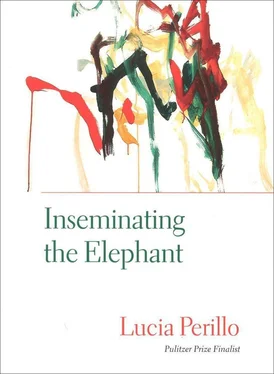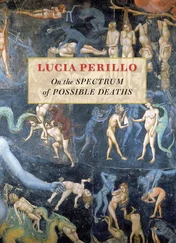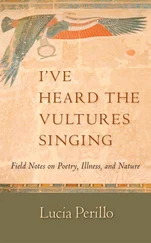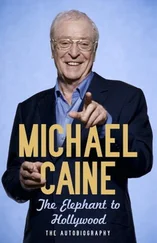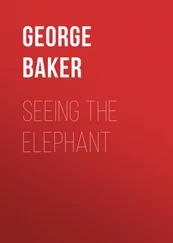of this dented ancient Econoline van
with its parrot-yellow-colored burden.
Bright mishmash so precarious
my heart twitched whenever I had to tail it down the road
until one day I woke to it: you blockhead, that’s a plane .
I don’t know how I missed it — of course it was a plane,
disassembled, with one yellow wing pointing sideways from the roof.
Fuselage dinged by rocks from the road
and two little wheels sticking up from the van—
now when I tally all the pieces, it seems pretty obvious.
And I wonder if toting it around would be a burden
or more some kind of anti-burden.
Because if you drove around with a plane
you might feel less fettered than the rest of us:
say your life hung around your neck like a concrete Elizabethan ruff
you could always ditch that junker van
and take off rattling down the runway of the road.
But my friends said they’d seen that heap for so long on the road
it was like a knock-knock joke heard twice too often.
You’ll be sorry they said when I went looking for the guy who drove the van,
whom I found in the library, beating the dead horse of his plane.
Once you got him started it was hard to shut him off:
how, if he had field to rise from, he’d fly to Sitka, or Corvallis—
but how does a guy living in a van get a field, you think the IRS
just goes around giving people fields for free? The road
of his thought was labyrinthine and sometimes ended in the rough
of Cambodia or Richard Nixon.
He said a plane in pieces still counts as a plane,
it was still a good plane, it was just a plane on a van.
And of course I liked him better as part and parcel of the van;
the actual guy could drive you nuts.
All his grace depended on his sitting underneath that plane
as it rattles up and down the road
like a train with a missile, a warhead of heavy hydrogen.
Because the van reverts to rubble once the plane takes off.
And if my own life is a plane, it’s like the Spirit of St. Louis —
no windshield, just the vantage of a periscope.
Forward, onward, never look down — at the burden of these roofs and roads.
Snowstorm with Inmates and Dogs
The prison kennel’s tin roof howls
while the dogs romp outside through the flakes.
The inmates trained a dog to lift my legs—
for months they rolled the concrete floor
in wheelchairs, simulating.
Through a window I watch them cartwheel now,
gray sweatpants rising against the whitened hill
traversed by wire asterisks and coils.
At first I feared they pitied me,
the way I flinched at the building’s smell.
Now the tin roof howls, the lights go off
to the sound of locking doors. Go on, breathe—
no way the machinery of my lungs
is going to plow the county road.
Didn’t I try to run over a guy,
spurned love being the kindling stick that rubbed
against his IOUs? Easy to land here,
anyone could — though I think laughter
would elude me, no matter what the weather.
Compared to calculating how far to the road.
Signs there say: CORRECTIONS CENTER DO NOT PICK UP HITCHHIKERS.
My instructions were: Accept no notes or photographs,
and restrict the conversation to such topics as
how to teach the dog to nudge
the light switch with his nose.
Now the women let their snowballs fly — as if
the past were a simple matter that could splat and melt.
Only my red dog turns his head
toward the pines beyond the final fence
before the generator chugs to life.
I couldn’t have waited. By the time you return
it would have rotted on the vine.
So I cut the first tomato into eighths,
salted the pieces in the dusk,
and found the flesh not mealy (like last year)
or bitter,
even when I swallowed the green crown of the stem
that made my throat feel dusty and warm.
Pah. I could have gagged on the sweetness.
The miser accused by her red sums.
Better had I eaten the dirt itself
on this the first night in my life
when I have not been too busy for my loneliness—
at last, it comes.
Twenty-five Thousand Volts per Inch
The weird summer of lightning (to be honest) was not a summer, but a week
when we sat every night in a far corner of the yard
to watch the silver twitch over our drinks.
It may help to know the sky hardly ever spasms here,
which is why we savored the postscript smell of nickel,
ions crisping in the deep fry.
The bolts made everything erogenous, the poppies and the pumpkin vine—
we could hardly bear to leave our watch post
but had tickets for the concert at the pier.
And we could not bear to miss the jam band from our youth,
which we feared discovering lacked talent and looked foolish
in their caveman belt buckles and leather hats.
Whew. That we found in them a soulfulness, an architecture
of tempo changes and chord progressions
left us relieved. Childishly
we hummed along as the sun got gulped down like a vitamin
and boats of cheapskates gathered on the bay.
When the lightning started, it was fearsome and silent
as usual. We were older, we knew this,
but the past proved not to be all suicide and motorcycle accidents.
Here was proof the music had shown some finesse—
even if it pillaged the discographies of black men from the Delta
it did so honorably, erotically , meaning
“that which gathers.” So we held hands and drew near.
And the flashes lit us, when they lit us, in platinum flames:
then we saw, behold, below the bleachers,
a man whose rubber sneaker toe-tips
punctured the darkness as he spun.
He lurched and spun and lurched and fell,
a messenger from the ancient cults
until his stomach’s contents were strobed ruthlessly
once they splattered on the tarmac. Sky says: Rise ,
feet say: Heavy . Body would say: Torn in two
if it weren’t already passed out
with all the good Samaritans busy remembering
the words to the tune about the rambling man. Oh
Bacchus, Dionysus, ye Southern rock stars
of antiquity: Thank you for shutting the black door
behind which he vanished, so we could resume
holding each other, like two swigs of mouthwash.
Then the brother who was not dead
played another of our childhood songs.
Because she comes here just a few hours a week, you are lucky
to have found her—
Mrs. Ito, who is ninety-four: you have to bend way down
and speak loudly in her ear.
To ask for the story she floats on these words: wreckage and sky ,
the wreckage and sky,
when she tells how her house lost its moorings at dawn
to the shoulders of the surf.
How because she could not swim she clung to a door
and rode it the night
of April Fool’s Day, 1946:
the whole seaward part of town destroyed.
So the museum sits now in the lee of the headland
across from the bus station
where drunks sail to sleep on its wooden benches—
the sun outside has fried them through.
Wreckage and sky, the turmoil and the clarity:
timbers lobbed by the wave-crest
versus the constant stars. Or the wild hair of the drunks
versus this morning’s placid bay.
For sixty years she has sailed on the door
Читать дальше
